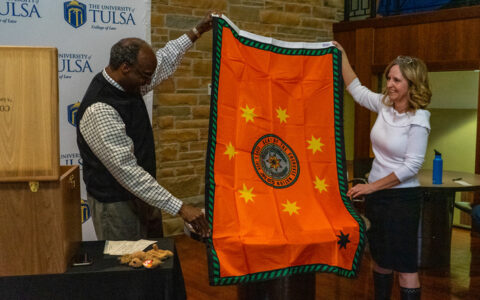Realize your leadership potential at our top-value law school and lay the groundwork for an exceptional future.
Priding ourselves with a hundred years of legal excellence, our law programs are designed to shape global leaders and prepare you to drive transformational growth. Ranked amongst the best across the U.S, TU offers programs for every stage of your professional journey – be it a minor in law, policy, and social justice, the academically rigorous juris doctor degree, or a variety of accelerated opportunities that get you practice-ready in no time.
Whether you are looking to kick-start or advance your career, our curriculum combines real-world experience and research-based insight, championing close mentorship from our outstanding faculty of scholars, professionals, and mentors in a vibrant and collaborative environment. From corporate and commercial to sustainable energy and natural resources law, you will benefit from diverse curricular offerings and flexible programs tailored to your individual interests and career goals.













